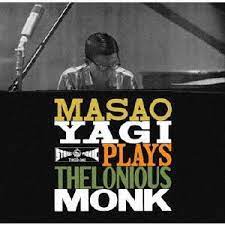
Daily Dose Of Jazz…
Masao Yagi was born on November 14, 1932 in Tokyo, Japan. He became devoted to American jazz very early in the wave of Japanese jazz enthusiasm, becoming a member of the Cozy Quartet in 1956 after Toshiko Akiyoshi’s departure. During his tenure in the quartet he played alongside Sadao Watanabe.
In 1959, at twenty-six, the pianist formed his own group featuring several Thelonious Monk tunes in their repertoire, culminating in his debut album, Masao Yagi Plays Thelonious Monk, recorded in the summer of 1960. Later in the decade he played with Charlie Mariano, Hidehiko Matsumoto, and Helen Merrill.
The 1970s saw Yagi leading his own ensembles. He was well-known as a composer and arranger, and wrote copiously for film soundtracks.
Pianist Masao Yagi transitioned on March 4, 1991.
More Posts: bandleader,history,instrumental,jazz,music,piano
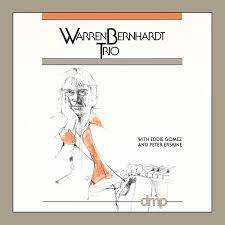
Daily Dose Of Jazz…
Warren Bernhardt was born on November 13, 1938 in Wausau, Wisconsin. His early childhood exposure to piano was due to his pianist father and he learned some rudiments of keyboarding from his friends. At five his parents moved to New York City, where he began studying seriously under varied instructors. After his father’s death he suffered a period of depression and quit music opting to study chemistry and physics at the University of Chicago. However, exposure to blues and jazz influenced the rest of his career.
From 1961 to 1964 he worked in Paul Winter’s sextet, which led to his return to New York. He would go on to work with George Benson, Gerry Mulligan, Jeremy Steig among others. He developed a close relationship with the pianist Bill Evans, who served as his mentor. Bernhardt released several solo albums in the Seventies, and eventually became a member of the jazz fusion group Steps Ahead. In 1971, he provided the piano accompaniment on the Don McLean song Crossroads.
Warren has toured as the musical director with Steely Dan and can be heard on their Alive in America album. He has performed on Simon and Garfunkel’s Old Friends tour, on Art Garfunkel’s solo tours, and on the latter’s presentation Across America.
In 2009 he reunited with his 1973 band L’Image, featuring Mike Mainieri, David Spinozza, Tony Levin and Steve Gadd. They released the album L ‘Image 2.0. Pianist Warren Bernhardt transitioned on August 19, 2022 of natural causes.
More Posts: bandleader,history,instrumental,jazz,music,piano
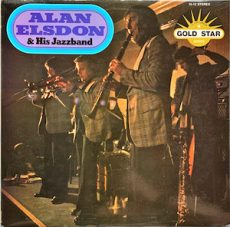
Daily Dose Of Jazz…
Brian Leake was born November 9, 1934 in South Wales, Wales. He first played the clarinet in Mike Harris’ jazz band while studying architecture. After completing his military service, he moved to London, England where he worked full-time as a salesman. He was also active in the British trad jazz scene from the early 1960s and his first recordings were made in 1962 with Mick Mulligan and George Melly on At the Jazz Band Ball.
He also played with Dick Charlesworth on P&O ships and in 1964 he appeared on the BBC program Jazz Club with Charlesworth and His City Gents. By the end of the decade it was owned by Alan Elsdon & His Jazz Band. Leake led a mainstream jazz sextet called Sweet & Sour with the bassists Paul Bridge and Ron Rubin were members. He led the Al Fresco Marching Band, in which he played alto saxophone.
He was involved in recordings by The Nottingham Barbers’ Shop Quartet and singer Clinton Ford. Recordings of Leake’s BBC radio appearances from 1979 to 1990 appear on the album Benign Jazz. As a pub pianist, he appeared in an episode of the television series Nick Lewis, Chief Inspector .
Pianist, saxophonist, clarinetist Brian Leake, who composed traditional jazz, transitioned on November 10, 1992.
More Posts: bandleader,clarinet,history,instrumental,jazz,music,piano,saxophone
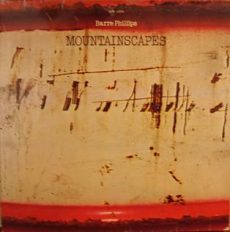
Daily Dose Of Jazz…
Barre Phillips was born October 27, 1934, in San Francisco, California. He studied briefly in 1959 with S. Charles Siani, Assistant Principal Bassist with the San Francisco Symphony. In 1962 he moved to New York City in 1962 and during the Sixties he recorded with, among others, Eric Dolphy, Jimmy Giuffre, Archie Shepp, Peter Nero, Attila Zoller, Lee Konitz and Marion Brown.
Moving to Europe in 1967, Phillips’ 1968 recording of solo bass improvisations was issued under three different titles as Journal Violone in the US, Unaccompanied Barre in England, and Basse Barre in France on Futura Records, is generally credited as the first solo bass record.
A 1971 record with Dave Holland, Music from Two Basses, was probably the first record of improvised double bass duets. Since 1972 he has been based in southern France and in the 1970s, he was a member of the well-regarded and influential group The Trio, with saxophonist John Surman and drummer Stu Martin.
The 1980s and 1990s saw Barre playing regularly with the London Jazz Composers Orchestra, led by fellow bassist Barry Guy. He worked on soundtracks of the motion pictures Merry-Go-Round, Naked Lunch together with Ornette Coleman, and Alles was baumelt, bringt Glück!. He has also worked with numerous bassists, guitarists, clarinetists, saxophonists, and pianists.
At 87, double bassist Barre Phillips continues to be active on the jazz scene.
More Posts: bass,history,instrumental,jazz,music
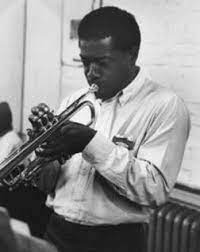
Three Wishes
It was Al Shorter that she approached with the question of three wishes and he told Nica he had only one wish that summed it all up:
- “I want to live more than my life. That’s all my three wishes, really.”
More Posts: baroness,flugelhorn,history,instrumental,jazz,music,pannonica,three,trumpet,wishes




